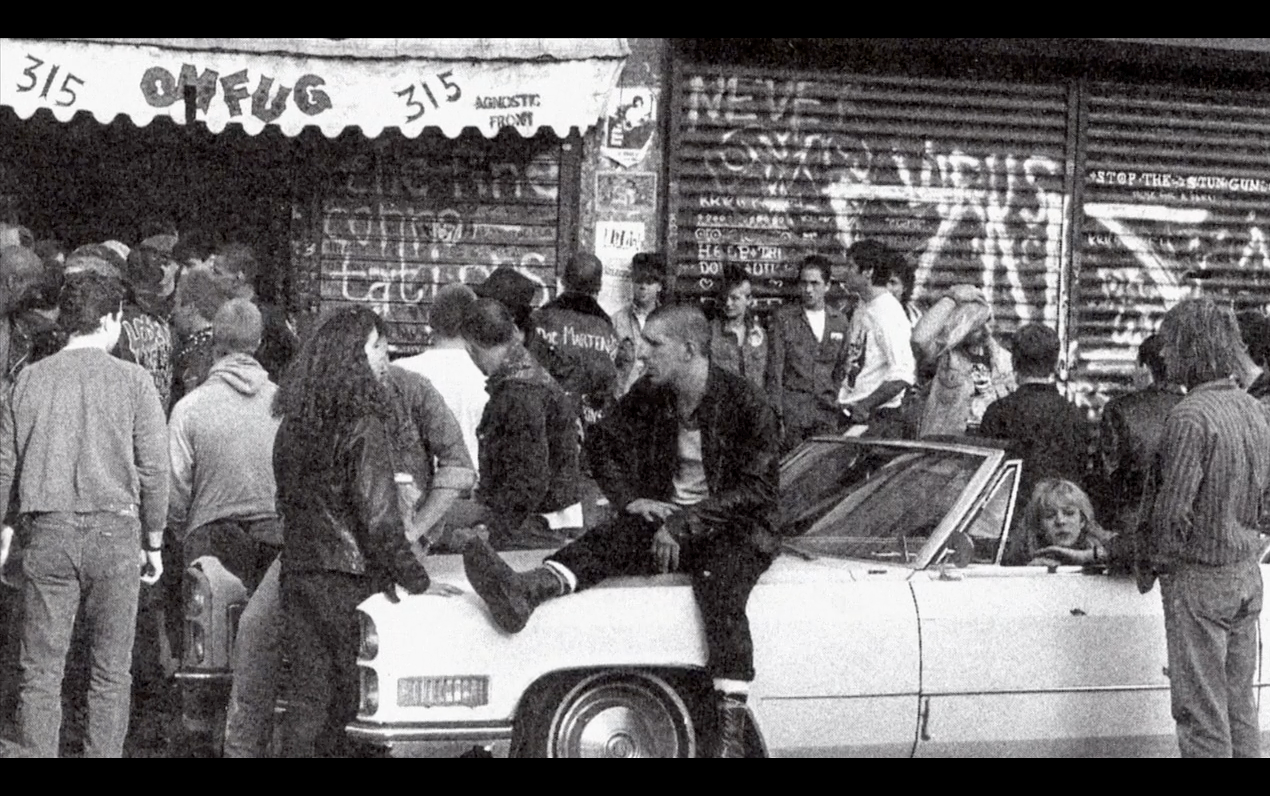At the matinee racconta, attraverso Walter Schreifels, un mondo presente nella New York del Lower East Side degli anni 80. Un viaggio per tornare a calcare il marciapiede davanti al CBGB dove hardcore kids, skinhead, punk e sbandati di tutti i generi attendevano di entrare nel club per uno dei tanti concerti matinee. Questi personaggi, con alte creste o rasati, vestiti dipelle o propositori di uno stile di vita vegetariano, furono una vera e propria comunità; un’umanità eterogenea e complessa, capace attraverso la musica, di incanalare il disagio in un’esplosiva e unica creatività. Una storia che inizia nei primi anni 80 e che trova la sua massima espansione attorno all’86. Una realtà spontanea, cresciuta nel cono d’ombra di Manhattan, fatta di ribellismo di strada, cultura giovanile e incoscienza. Una comunità vissuta sempre in equilibrio precario che incominciò a disgregarsi nell’88 quando, con la scusa di ripulire Tompkins Square, ma con l’intento di favorire la speculazione edilizia, il quartiere fu teatro di scontri tra polizia e punk. Da allora, quel mondo contraddittorio e pulsante dovette spostarsi dal Lower East Side per poi scomparire.
Nel 1989 vidi una foto su di una rivista. C’erano un centinaio di persone che entravano dentro il celebre CBGB insieme ai membri dei gruppi che avrebbero suonato quella domenica pomeriggio. Io ero in Italia, ma volevo essere con quei ragazzi che posavano davanti alla macchina fotografica a New York.
Era il 1989 e quello era un matinée. Quei concerti erano uno dei momenti cardine della scena hardcore di New York. Un momento di aggregazione difficile da decifrare se non si comprendono i codici e i linguaggi interni alla comunità.
Walter prova a raccontarlo con le sue canzoni, cercando di tessere i vari elementi di questa storia. Il documentario non narra solo della scena musicale, ma raccontando questa scena e le persone che ne furono parte, cerca di ricostruire l’atmosfera e il significato artistico di quel periodo. Il Contesto degradato è quello attorno a cui si sviluppa il fenomeno dei Matinee, che altro non erano che concerti svolti in orari diurni la domenica.
Walter torna in un quartiere completamente cambiato, ripulito dai suoi eccessi per incontrare i suoi protagonisti, cercando di svelare, cosa rimane di un mondo ormai scomparso.
